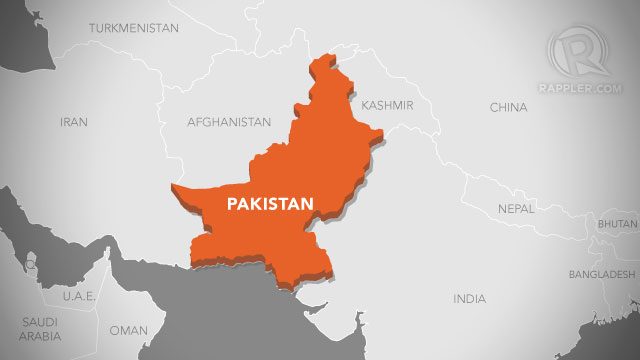SUMMARY
This is AI generated summarization, which may have errors. For context, always refer to the full article.

ISLAMABAD, Pakistan – Pakistan’s parliament on Tuesday, May 6, voted unanimously to lift a ban on YouTube, in a non-binding resolution that was nonetheless welcomed by free speech campaigners as an important symbolic move.
The video-sharing website has been blocked in Pakistan since September 2012 over its hosting of the “Innocence of Muslims” movie that sparked furious protests around the world.
A US appeals court in February ordered Google, which owns YouTube, to remove the film after a lawsuit brought by an actress who says she was tricked into appearing in it, but the Pakistani ban remains in place.
Shazia Marri, a lawmaker from the opposition Pakistan Peoples Party (PPP) who put forward the resolution, said students and researchers were suffering as a result of the blackout.
“We have been disconnected from the world by the ban on YouTube,” she said.
The deputy speaker of the house Murtaza Javed Abbasi later read out the resolution and all the lawmakers voted in its favour.
“The house resolves that government may take immediate steps for opening of YouTube,” he said.
Responding to the resolution, state health minister Saira Afzal Tarar said the government was in favour of lifting the ban but it was in the hands of the courts.
“YouTube has been banned on the orders of Supreme Court and there is another case regarding the ban in Lahore High Court and the matter is sub judice. However the house can suggest names to form a committee to work on the issue,” she said.
‘Double standard’
After the vote, Marri told Agence France-Presse it was time for Pakistan to give up what she termed its “double standard”.
“The Pakistani Taliban launches their website and the (government) does not take action against it, but it maintains a ban on YouTube,” she said.
It was the PPP government which initially imposed the ban. Marri defended this, saying religious hardliners at the time were “outraged”.
Though the resolution is not legally binding, it was seen as a positive step by anti-censorship campaigners.
Shahzad Ahmed, director of a group called Bytes for All that campaigns against Internet censorship and has asked a court to overturn the ban, said it was a “very welcome” move.
“It’s great news and I think it’s time for the political leadership to take the lead in resolving the issue,” he said.
But some observers remained doubtful. Newspaper columnist and commentator Harris Khalique said the government was reluctant to lift the ban as it doesn’t want to confront the religious groups.
“Slapping a ban on YouTube was purely political but garbed in respect for religion,” he told Agence France-Presse.
“It is a ridiculous way of appeasing the orthodox religious groups who are in a minority but create a huge nuisance.”
Free speech campaigners in Pakistan have long complained of creeping censorship in the name of protecting religion or preventing obscenity.
In November 2011, the telecommunications authority tried to ban nearly 1,700 “obscene” words from text messages, which included innocuous terms such as “lotion”, “athlete’s foot” and “idiot”.
In 2010, Pakistan shut down Facebook for nearly two weeks over its hosting of allegedly blasphemous pages. It continues to restrict thousands of online links. – Rappler.com
Add a comment
How does this make you feel?
There are no comments yet. Add your comment to start the conversation.